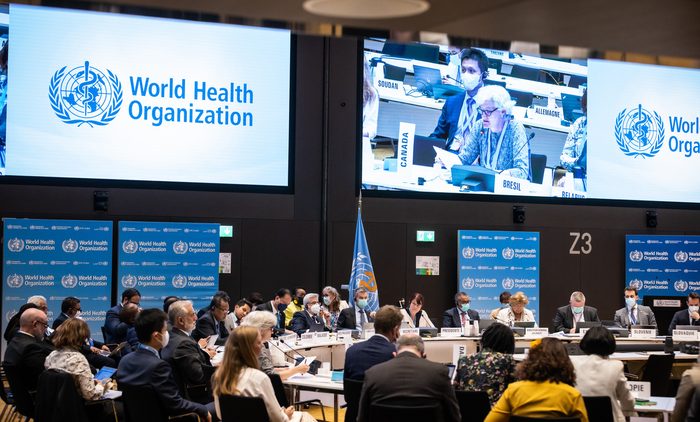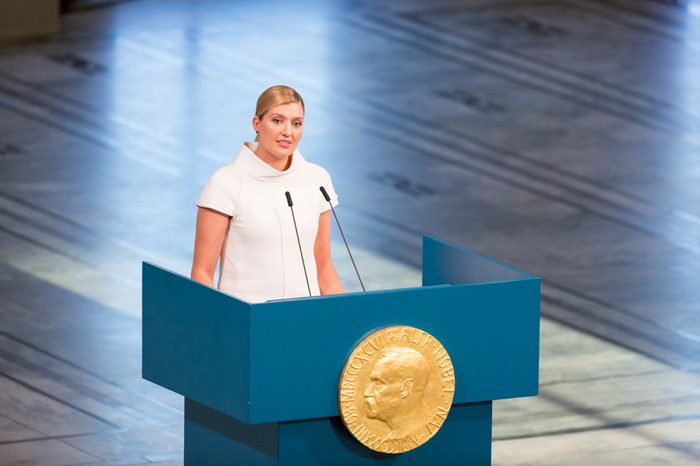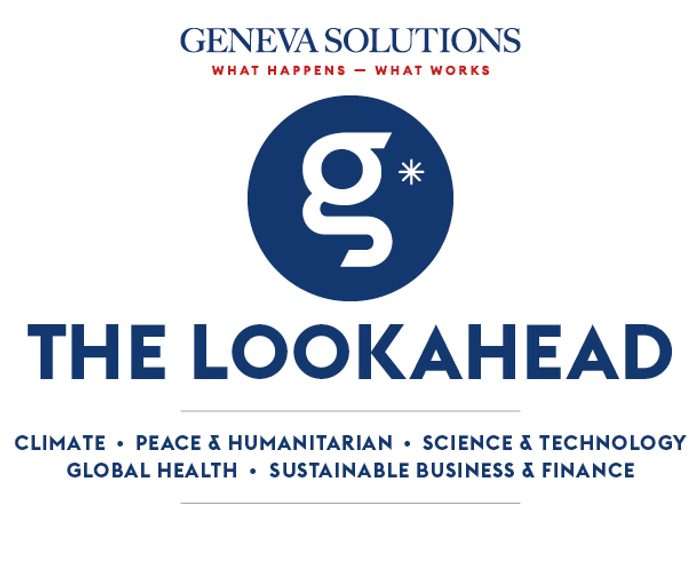Hi, this is Michelle. As the WHO considers whether an end to the pandemic is finally in sight, countries will meet starting today in Geneva to discuss the future of global health, with key issues ranging from how to better prepare for the next emergency to how to finance the response.
On the climate agenda, efforts to monitor greenhouse gas emissions causing the planet to heat up will be at the centre of technical yet key discussions at the WMO. And as one of the highly-renowned figures of the nuclear ban movement takes her leave on Tuesday, we look back with her at her time leading the fight. |

|

Countries gather in Geneva for the 151st session of the WHO’s executive board on 30 May 2022. (WHO/Pierre Albouy)
|
|
Covid to loom over talks about future of global health.
Health ministers and diplomats will gather in Geneva from 30 January to 7 February to discuss the future of global health governance as the World Health Organization (WHO) contemplates whether Covid-19 is still a global emergency. The UN health agency’s executive board – consisting of 34 member states tasked with preparing the agenda for the next World Health Assembly in May – will debate how to be better equipped for the next pandemic.
Geneva Solutions (EN)
|
|
WMO talks on monitoring greenhouse gas emissions.
As countries try to get a grasp on carbon emissions in efforts to tackle climate change, experts will be meeting at the World Meteorological Organization (WMO) to discuss setting up Earth and space infrastructures to monitor the gases. On Monday and Tuesday, senior WMO officials, national weather officials, space agencies and research institutes are expected to present existing systems in use as well as highlight gaps and the importance of quantifying carbon budgets in real time. Ahead of this year’s Cop28 climate summit, countries are being urged to boost their emissions cutting commitments
WMO (EN)
|
|

Beatrice Fihn at the Nobel Peace Prize ceremony in Oslo, December 2017. (Credit: Jo Straube)
|
|
Leading the nuclear ban struggle.
Within a matter of years, Beatrice Fihn became one of the most recognisable faces of the movement to rid the world of nuclear weapons. The Swedish lawyer and activist was thrust into the global spotlight in 2017 when she accepted the Nobel Peace Prize on behalf of the International Campaign to Abolish Nuclear Weapons (ICAN), for the group’s work to establish the world’s first legally binding treaty to prohibit nuclear weapons. As she prepares to step down from her role as executive director, Geneva Solutions spoke to her about her trajectory.
Geneva Solutions (EN)
|
|
|
GS news is a new media project covering the world of international cooperation and development. Don’t hesitate to forward our newsletter!
Have a good day!
|

|
|
Avenue du Bouchet 2
1209 Genève
Suisse
|
|
|
|









